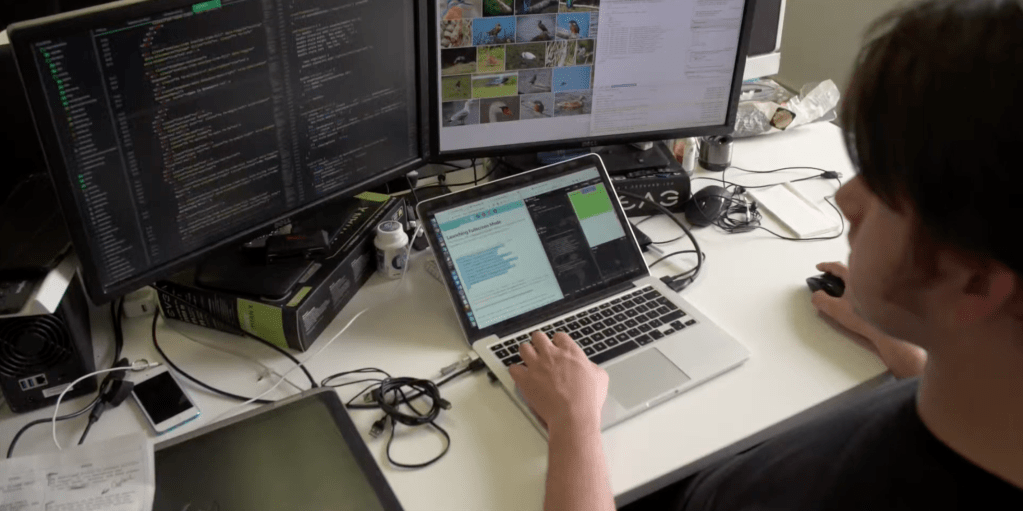U.K.-based Pimloc has closed a £1.4 million (~$1.8 million) seed funding round led by Amadeus Capital Partners. Existing investor Speedinvest and other unnamed shareholders also participated in the round.
The 2016-founded computer vision startup launched a AI-powered photo classifier service called Pholio in 2017 — pitching the service as a way for smartphone users to reclaim agency over their digital memories without having to hand over their data to cloud giants like Google.
It has since pivoted to position Pholio as a “specialist search and discovery platform” for large image and video collections and live streams (such as those owned by art galleries or broadcasters) — and also launched a second tool powered by its deep learning platform. This product, Secure Redact, offers privacy-focused content moderation tools — enabling its users to find and redact personal data in visual content.
An example use case it gives is for law enforcement to anonymize bodycam footage so it can be repurposed for training videos or prepared for submitting as evidence.
“Pimloc has been working with diverse image and video content for several years supporting businesses with a host of classification, moderation and data protection challenges (image libraries, art galleries, broadcasters and CCTV providers),” CEO Simon Randall tells TechCrunch.
“Through our work on the visual privacy side we identified a critical gap in the market for services that allow businesses and governments to manage visual data protection at scale on security footage. Pimloc has worked in this area for a couple of years building capability and product; as a result, Pimloc has now focused the business solely around this mission.”
Axon delivers new tech for police, but are more tools really what cops need?
Secure Redact has two components: A first (automated) step that detects personal data (e.g. faces, heads, bodies) within video content. On top of that is what Randall calls a layer of “intelligent tools” — letting users quickly review and edit results.
“All detections and tracks are auditable and editable by users prior to accepting and redacting,” he explains, adding: “Personal data extends wider than just faces into other objects and scene content, including ID cards, tattoos, phone screens (body-worn cameras have a habit of picking up messages on the wearer’s phone screen as they are typing, or sensitive notes on their laptop or notebook).”
One specific user of redaction with the tool he mentions is the University of Bristol. There, a research group, led by Dr Dima Damen, an associate professor in computer vision, is participating in an international consortium of 12 universities which is aiming to amass the largest data set on egocentric vision — and needs to be able to anonymise the video data set before making it available for academic/open source use.
On the legal side, Randall says Pimloc offers a range of data processing models — thereby catering to differences in how/where data can be processed. “Some customers are happy for Pimloc to act as data processor and use the Secure Redact SaaS solution — they manage their account, they upload footage and can review/edit/update detections prior to redaction and usage. Some customers run the Secure Redact system on their servers where they are both data controller and processor,” he notes.
“We have over 100 users signed up for the SaaS service covering mobility, entertainment, insurance, health and security. We are also in the process of setting up a host of on-premise implementations,” he adds.
Asked which sectors Pimloc sees driving the most growth for its platform in the coming years, he lists the following: smart cities/mobility platforms (with safety/analytics demand coming from the likes of councils, retailers, AVs); the insurance industry, which he notes is “capturing and using an increasing amount of visual data for claims and risk monitoring” and thus “looking at responsible systems for data management and processing”; video/telehealth, with traditional consultations moving into video and driving demand for visual diagnosis; and law enforcement, where security goals need to be supported by “visual privacy designed in by default” (at least where forces are subject to European data protection law).
On the competitive front, he notes that startups are increasingly focusing on specialist application areas for AI — arguing they have an opportunity to build compelling end-to-end propositions which are harder for larger tech companies to focus on.
For Pimlock specifically he argues it has an edge in its particular security-focused niche — given “deep expertise” and specific domain experience.
“There are low barriers to entry to create a low-quality product but very high technical barriers to create a service that is good enough to use at scale with real ‘in the wild’ footage,” he argues, adding: “The generalist services of the larger tech players do not match up with domain specific provisions of Pimloc/Secure Redact. Video security footage is a difficult domain for AI, systems trained on lifestyle/celebrity or other general data sets perform poorly on real security footage.”
Commenting on the seed funding in a statement, Alex van Someren, MD of Amadeus Capital Partners, said: “There is a critical need for privacy by design and large-scale solutions, as video grows as a data source for mobility, insurance, commerce and smart cities, while our reliance on video for remote working increases. We are very excited about the potential of Pimloc’s products to meet this challenge.”
“Consumers around the world are rightfully concerned with how enterprises are handling the growing volume of visual data being captured 24/7. We believe Pimloc has developed an industry leading approach to visual security and privacy that will allow businesses and governments to manage the usage of visual data whilst protecting consumers. We are excited to support their vision as they expand into the wider Enterprise and SaaS markets,” added Rick Hao, principal at Speedinvest, in another supporting statement.





























Comment